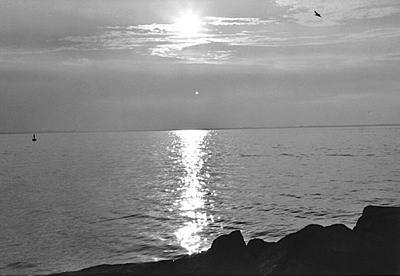All Nonfiction
- Bullying
- Books
- Academic
- Author Interviews
- Celebrity interviews
- College Articles
- College Essays
- Educator of the Year
- Heroes
- Interviews
- Memoir
- Personal Experience
- Sports
- Travel & Culture
All Opinions
- Bullying
- Current Events / Politics
- Discrimination
- Drugs / Alcohol / Smoking
- Entertainment / Celebrities
- Environment
- Love / Relationships
- Movies / Music / TV
- Pop Culture / Trends
- School / College
- Social Issues / Civics
- Spirituality / Religion
- Sports / Hobbies
All Hot Topics
- Bullying
- Community Service
- Environment
- Health
- Letters to the Editor
- Pride & Prejudice
- What Matters
- Back
Summer Guide
- Program Links
- Program Reviews
- Back
College Guide
- College Links
- College Reviews
- College Essays
- College Articles
- Back
Cetaceans at Seaworld
For many years, marine mammals have been a staple of the marine attractions at Six Flags and have been the main purpose of zoological institutions such as Seaworld. However, for the past decade there has been a lot of controversy around the treatment of Orcas and other cetaceans (marine mammals) and with the surge in concern for these issues in response to the documentary “Blackfish”, laws have been passed in some states banning the capture of more Orcas and the breeding of them. The remaining concern here then is what should happen to the remaining cetaceans housed in zoological parks.
This all matters because chances are, anyone who is reading this article has been to a marine park like Seaworld or Six Flags, and have seen the Orcas or Penguins or Seals or Dolphins. The trainers at these institutions say the animals are extremely intelligent, especially Orcas, but if they are so intelligent, why are they being held in captivity for the amusement of the masses?
The parks say the reason for the captivity is for conservation of wildlife or for the education of everyone. However, parks like Seaworld when talking about Orcas say that twenty-five percent of all Orcas have a “floppy” dorsal fin. In a telegraph article, Helen O’Hara says that “male orca suffer a drooping dorsal fin that is seen in only 1% of wild whales.” The parks have also said that these animals live longer in captivity than in the wild, but, Miss. O’Hara also has a contradiction to this stating “The life expectancy of captive whales is also significantly lower than wild whales: males live 17-30 years as opposed to 50 or 60 in the wild, while wild females can live up to 100.” This itself is enough basis for skepticism towards parks and their true motives for keeping marine mammals in captivity. I believe that the observation and conservation of wild life should be limited to the “spotting” of marine life in replacement of marine parks for the benefit of the animals and to ensure a greater education on the topic of cetacean life.
Let’s look at the drawbacks of keeping marine life in amusement parks. In general, all cetaceans live longer in the wild than in captivity as established above. Another drawback is the behavior taught to these animals for the shows and for when they are in the tank is not their “natural behavior” and thus does not teach anything about these animals in their natural habitat nor does it teach us to love them as they are in the wild. Take the penguins at Six Flags Discovery Kingdom for example. Penguins are not native to Sacramento and the temperatures that they “perform” in are not what they are made for. Penguins come from colder climates generally south of the equator and when we see them, they are never exhibiting their usual behavior, nor are they in anything close to their natural climate.
This treatment of intelligent marine life is unjust and to truly understand them and grow to love them in their natural state, we need to find ways to observe them unobtrusively. The type of observation that I believe is the most beneficial to both the people observing marine life and the marine life itself is en situ observation which is observation of marine life in a wider often less controlled environment. Examples of en situ observation are spotting tours and the like where you are observing these species in their natural habitat. Indeed, some of these species are harder to access in their natural habitats, but efforts should be made to observe them where they are if we want to truly learn more about these animals. I implore you as the reader to reach out to marine parks around you and call for the reintroduction of these animals into more natural habitats or to completely reintroduce them to the wild.

Similar Articles
JOIN THE DISCUSSION
This article has 0 comments.

This peace was inspired by the film blackfish that concerned millions about the treatment and living conditions of marine life in marine parks and across the world. I'm hoping that after reading this piece that readers are motivated to call for better treatment of marine life.